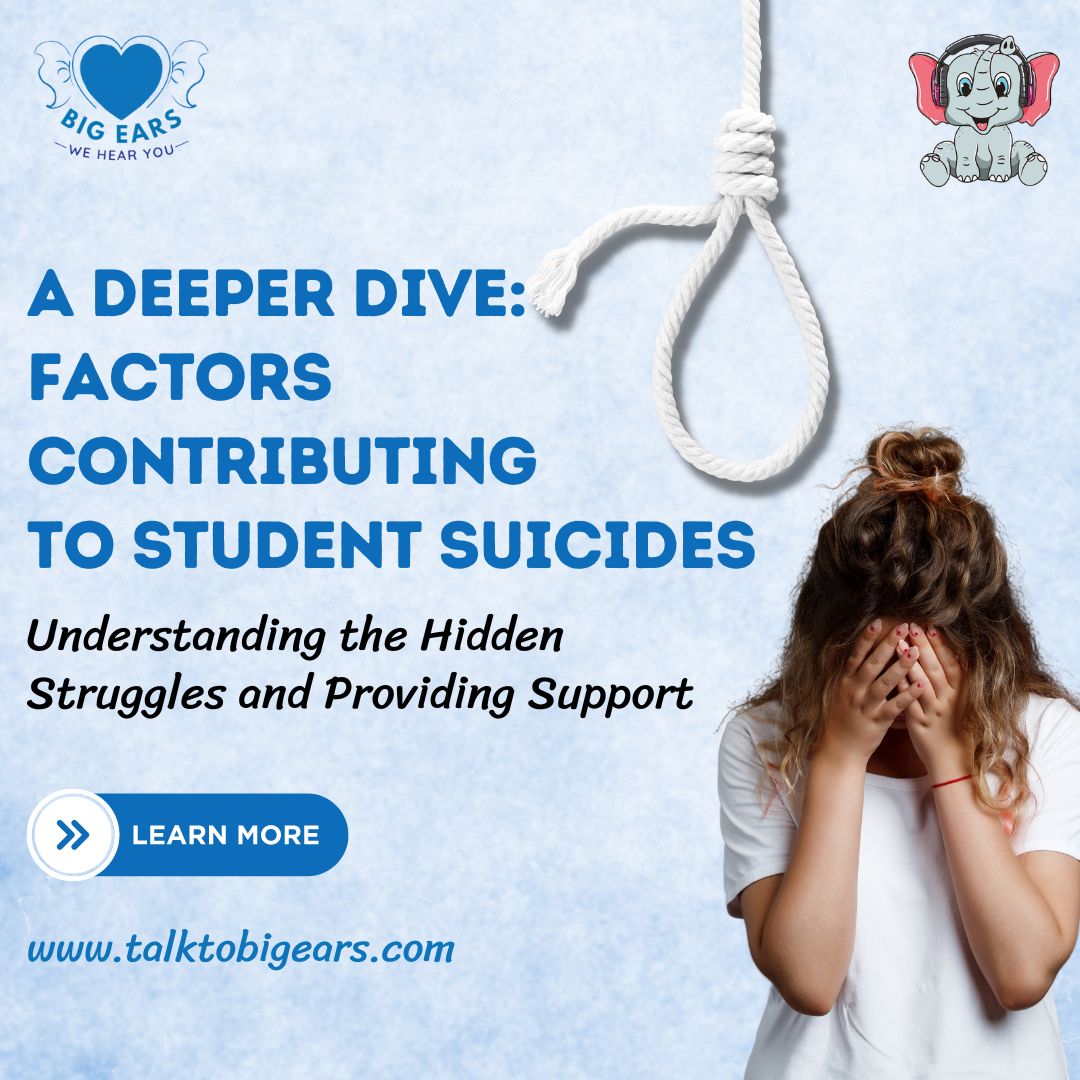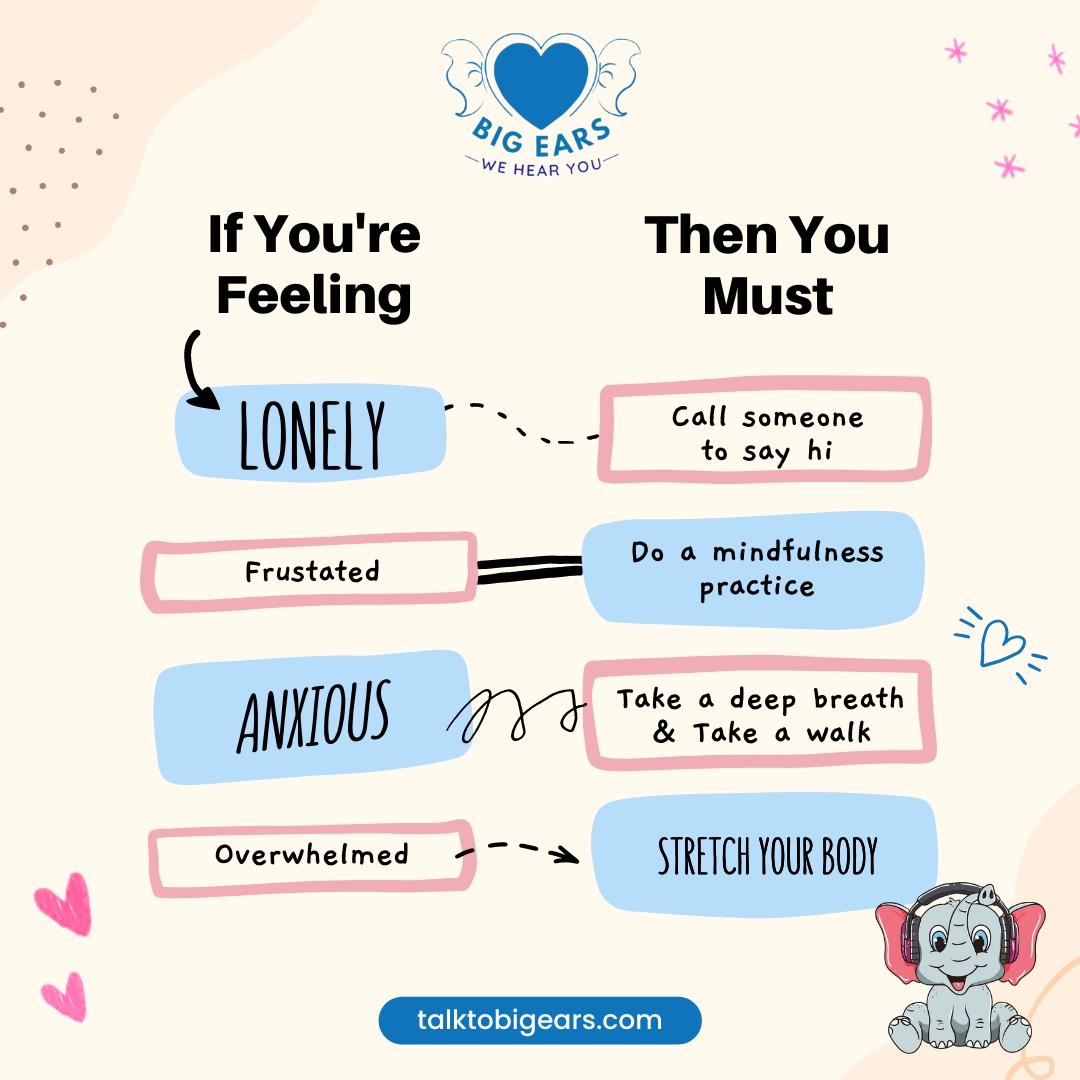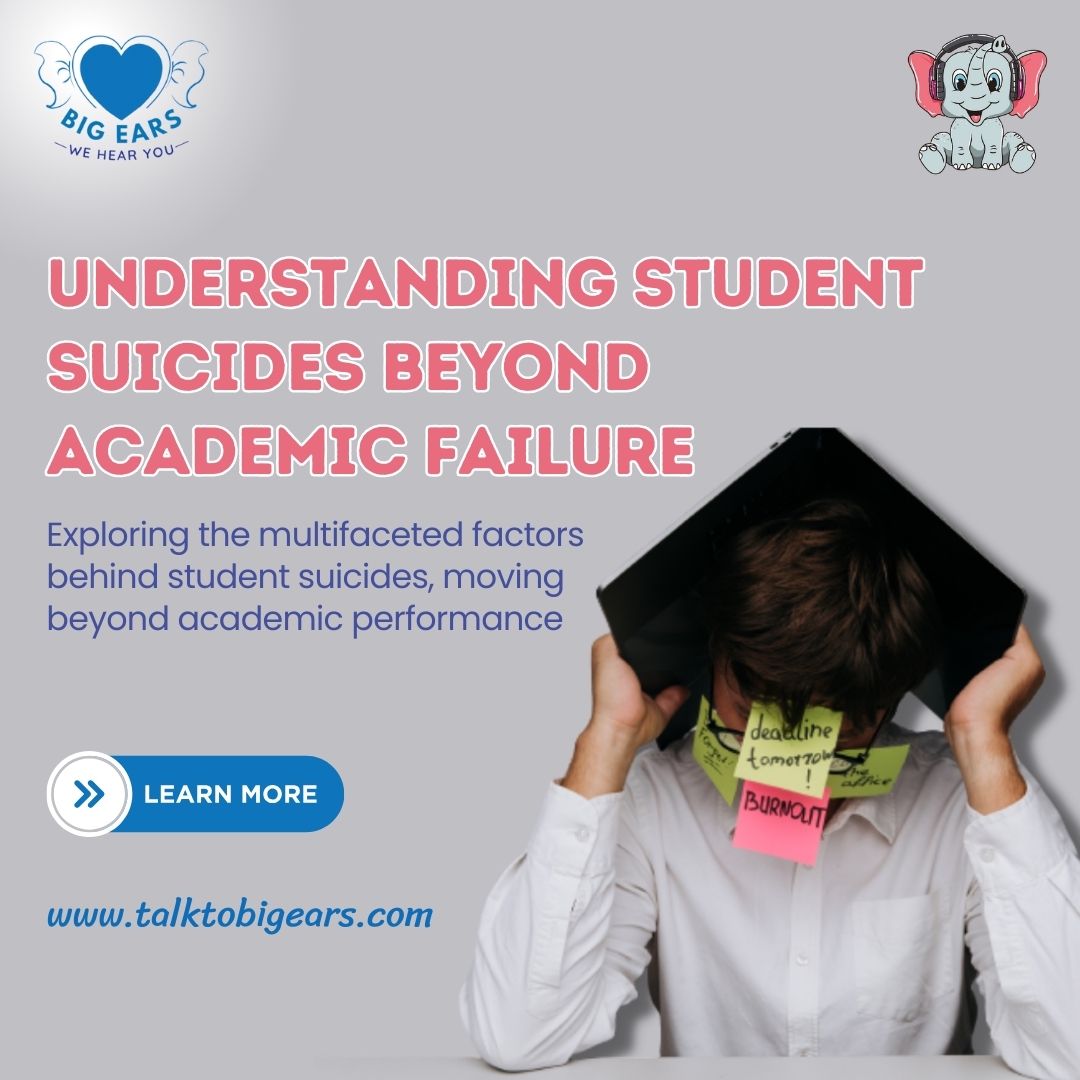
A Deeper Dive: Factors Contributing to Student Suicides
When someone decides to take their life, it's called suicide. This happens when a person feels overwhelmed, hopeless, and frustrated. Mostly, this extreme step is taken when the person is unable to find a solution to a problem.
A person dying by suicide is devastating for everyone associated with him or her, be it family, friends, or colleagues. What’s left behind are people who feel guilty and angry and are left wondering if they could have done something, anything, to prevent them from committing suicide.
The rising complexities and lack of mental health Education among students has increased the number of suicide cases. The reason behind a student’s suicide can be complex. Our education system tops the list because of rising competition and a lack of mental health discussion among students, parents, and teachers. A lack of a talk buddy—someone they can talk to—has also led to the rise of such a situation.
However, there are many other causes of suicide attempts among school students and college students; let's peek into each one of them.
1. There is a family history of suicide.
Some studies have shown evidence that students are more exposed to suicide when they have a history of suicide in their families. Not just genetically exposed, they become more inclined towards mental disorders.
2: Exposure to violence
Students nowadays have exposure to violence through easy access to the internet, fights among peers, violent games such as Blue Whale, and television content.
In many cases, if the child is exposed to physical violence, it can cause emotional abuse, thus provoking them to take extreme steps.
3-Impulsivity
Lack of decision-making, the unacceptability of failure, and dilemmas over stressors can hamper your life choices, which can cause impulsivity and make a child more prone to suicidal behavior or self-harm.
4-Bullying
Students can face bullying in school or college, which, when extreme, can cause them to make rash decisions. Bullying can impact one’s mental, physical, and emotional well-being, thus causing student suicides.
5-Burdened with expectations
The behavior of self-harm and injury is quite common among students who are adolescents. Disagreement with family members, disharmony within the family, being burdened with over-expectations of the parents, etc. can easily expose them to self-harm behavior, thus causing them to attempt suicide.
6-Identity issues
Adolescence is a crucial stage where students feel confused about their identity. Unable to fit in or feeling excluded can mess up children a great deal. Being unable to fit in can cause loneliness and frustration, which contributes to student suicide.
7-Insomnia
Students go through major changes such as parental pressure, fights, being unable to make friends, being unable to fit in, bullying, etc. These situations can lead to mental health conditions such as depression, anxiety, and insomnia.
School Students at certain stages usually feel disconnected from teachers as well as parents, so they rely more on their peers. Which might not always be the kind of help or support they require.
8-Sexual identity
Students also feel confused when it comes to sexual identity. The need for relationships and conflicts can cause them to feel lonely and hamper their emotional well-being.
9: Inability to accept no
College Students these days are so pushed into the competition, and constant pressure from parents has culminated in fear of failure, which has resulted in them not accepting a simple no or failure.
Sometimes, when children are exposed to too much luxury, having an acceptance of getting something below that also becomes an issue. Such conditions can become frustrating for them. Thus causing them to indulge in self-harm behavior.
10-Environmental stressors
A student is exposed to various environmental stressors such as harassment, bullying, bad relationships, and the occurrence of stressful events in life such as parents' divorce, the death of a loved one, rejection, or loss. Such environmental stressors can have an impact on a child’s life. These stressors impact their studies and make them feel vulnerable as they might feel disconnectivity from everyone around them.
A student who feels burdened with these environmental stresses requires help either in the form of therapy such as talk therapy
11-Health issues
If a student is going through a mental health issue such as depression, substance abuse, or bipolar disorder, physical pain or traumatic injury can also contribute to self-harm injuries.
Here are some factors that contribute to the risk of student suicide:
● If a child is experiencing a depression or bipolar disorder episode
● The feelings of aggression, irritability, and distress
● Indulges in self-harm activities
● Has tried to attempt suicide previously.
● Has gone through physical, emotional, and sexual abuse
● Struggling with gender identity
● Unsupportive family
● The feeling of social isolation
Read more - UnderstandingStudent Suicides Beyond Academic Failure
What are the warning signs?
Does suicide happen abruptly? No. the warning signs for suicide includes various symptoms that you should look out for
If your child, friend, or student ever says to you, I don't wish to live," don't forget to look out for red flags. Here are some warnings to look out for:
● change in appetite
● changes in sleeping habits
● frequent mood swings
● withdrawal from family, friends, or school activities
● frequent complaints about physical symptoms such as stomach pain, headaches, fatigue, etc.
● emotional distance from peers and family
● Decline in schoolwork quality
● constant negative remarks
● Lost interest in taking part in social gatherings
● Irritated mood all day long
How can you help? Resources for suicide prevention
Children are usually uncomfortable talking about their feelings or thoughts. There is a fear of being scolded or not being understood. However, talking to a student or your child about how they feel or whether they are going through something can help them understand the situations they are going through.
You can start by asking such questions to assess their emotional well-being.
● Are you feeling sad or depressed about anything?
● Do you think about hurting or killing yourself?
● Have you ever indulged in self-harm activities?
A fight with a friend might not seem serious, but for a child, it can be serious and might be affecting them more than you think. Here is how you can help as a teacher or a friend;
● You may know someone who committed suicide and survived
In such situations, it's important to acknowledge what a child must be going through instead of ignoring or dismissing the fact that the child has tried to commit suicide. While the child will be burdened with social turmoil, it's important to provide them with a space where they can express themselves freely.
Usually, parents or teachers feel uncomfortable talking to the student who attempted suicide and survived, not only because it's shocking to them but because they feel discussing such a topic might not be a good idea. In such cases, it's important to give the child assurance that what he or she did was wrong and that there are several ways to cope.
An attempted suicide means it's time to take the necessary steps towards the solution and healing process.
● If you feel that the child needs some help, seek professional help from a practitioner and inform parents and teachers to ensure the safety of the child.
However, a child doesn't need to open up to their parents or teacher; this can make the healing journey difficult. That is why various service centers provide emotional first-aid to students.
These services allow students to reach out to them and help them in their healing journey. Just like Talk to Big Ears.
● Talk to Big Ears
A call-in service that assists students in identifying their stressors and helps them reach a solution that allows them to overcome their emotional trauma, thus helping them lead healthier lives.
These services ensure that a student feels safe to express and share things concerning them without being judged. It's like providing them with a talking buddy who can help them overcome such situations. Listening therapy or talk therapy ensures that no student is left neglected or finds it difficult to speak to anyone; thus making their healing process easy.
Combined with powerful and experienced therapies, these holistic service providers at Talk to Big Ears ensure the psychological needs of a student are met.
Things that you can expect:
● With the introduction of a listening buddy—one that works as an empathetic listener and provides a boost needed in life for overcoming conflicts
● Provides emotional first-aid support.
● Provides a listening buddy who ensures that a student feels no hindrance in sharing their thoughts.
● Provides a coach and a mentor who guides you in overcoming such thoughts and conditions.
● A healing journey toward emotional well-being
● Focuses on talk therapy rather than medications
Conclusion
Keeping a close eye on the students who show any discrepancies in their behavior, talking to parents, and providing training to teachers to analyze the warning signs can help provide emotional first-aid support. Try to keep communication between teachers, students, and parents open and free.
Any student, child, or adolescent should be provided with help whenever they need it. Students must learn a skill that mellows down their urge to commit suicide in a time of crisis.

Listening Buddy
When you need to talk to someone to get clarity and a grip on your emotions and fears, Call Talk to Big Ears at 9911977844
Read More

Understanding Student Suicides Beyond Academic Failure
Underneath the headlines about student suicides is a more complex story that goes well beyond academic achievement.